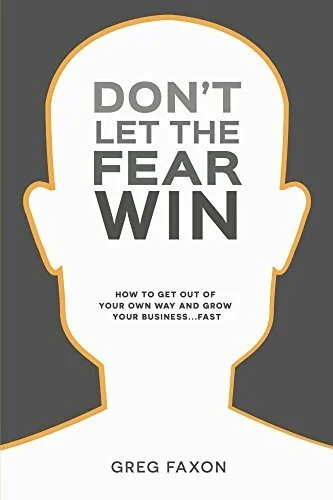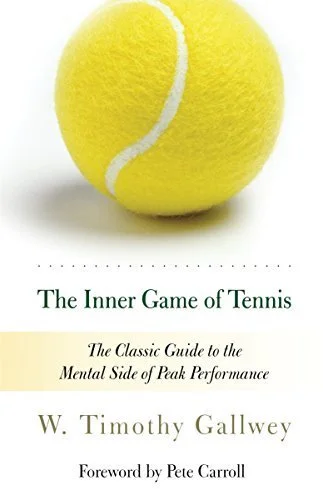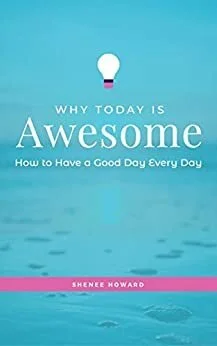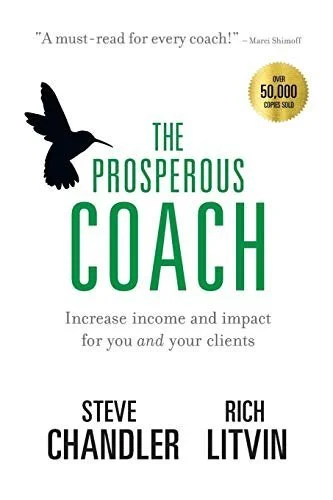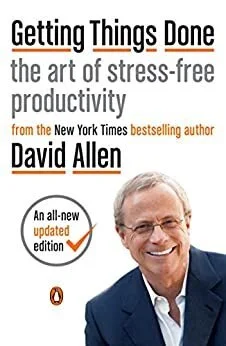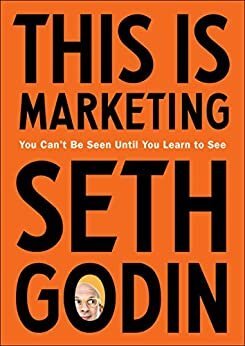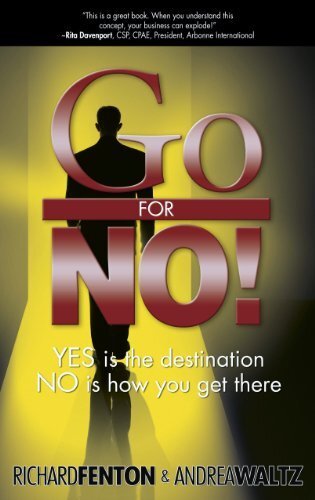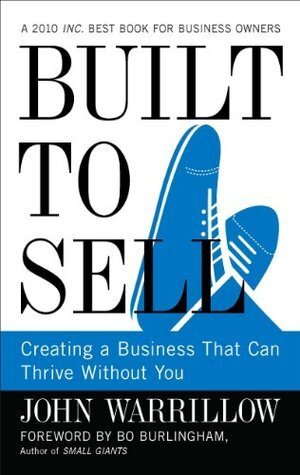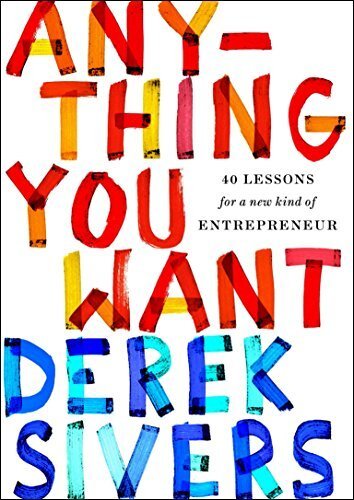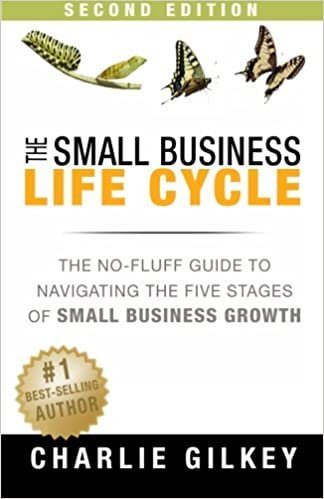The 30 Best Books For Life Coaches, Summarized
What separates successful life coaches from unsuccessful ones?
Is it...
A. The number of pictures they post from a beach in Bali
B. Whether or not they have a Wheel of Life tattoo
C. The rate at which they learn and improve
The correct answer is obviously C. I’ve seen this again and again in my work with coaches. The ones who keep learning are the ones with full client rosters.
It’s not just a matter of improving your coaching, either. You'll also need to learn marketing, sales, mindset, even productivity so that you can grow your business.
And then there’s the value of being able to recommend a book to your client…
That feeling when you think of the perfect book recommendation for your client (credit: Disney, giphy)
Of course, not all books for life coaches are created equal. You can waste a lot of time trying to find the perfect book for your situation.
Not to worry. I’ve done the hard work for you.
After building a six figure coaching business, and reading more than 231 books, I’ve narrowed the list to just 30 that every coach should read.
Best Books For Life Coaches (By Category):
For each recommended book, I’ve also included a summary, my thoughts, key takeaways, and a “Read This If” section to help you choose your next read.
Let’s dive into the best life coaching books available today…
🧠 Best Books On Mindset
1. Don't Let The Fear Win by Greg Faxon
My Rating: 5/5
Goodreads Rating: 4.70/5
3 Sentence Summary: Your biggest competition in the game of entrepreneurship isn't your competitors - it's the little kid in you that's driven by fear. Champions learn to wrestle with this fear instead of "Creatively Avoiding" the tasks that grow their business. Control the controllables.
My Thoughts: I wrote this book. My goal was to distill the key concepts from books like "The Inner Game of Tennis" by Timothy Gallwey and "The War of Art" by Steven Pressfield, then apply them directly to building a business. The result was a mindset handbook that you can read in less than an hour.
Key Takeaways:
"If it doesn’t scare you, it is probably not worth doing at all."
Read This If: You want to get out of your own way, develop a champion's mindset, and grow your coaching business.
2. The Wisdom of No Escape by Pema Chödrön
My Rating: 5/5
Goodreads Rating: 4.26/5
3 Sentence Summary: Hell is caused by our resistance to life. Instead of trying to avoid pain and discomfort, cultivate curiosity and acceptance. Meditation helps us develop a friendly relationship with ourselves.
My Thoughts: I’ve been meditating consistently for almost 10 years now. It’s been a game-changer. This book provided me with a deeper understanding of Buddhist philosophy as well as practical tips for my mediation practice. Highly recommended.
Key Takeaways:
View hard or annoying things as a way to wake up spiritually. “Because I didn’t like my students, therefore I had to work much harder to develop my heart.”
“it’s very important that each time you start [meditating], you have some sense of remembering what you’re doing: you simplify your main awareness onto the breath.”
“you can manipulate your world until you’re blue in the face to try to make it always smooth, but the same old demons will always come up until finally you have learned your lesson”
“Each religion or philosophical belief or New Age group has a kind of wisdom that it carries and explores. The point is that it’s best to stick to one boat, so to speak, whatever that boat may be, because otherwise the minute you really begin to hurt, you’ll just leave or you’ll look for something else.”
Read This If: You want to bring more ease and flow into your life. You want to deepen your spiritual practice, especially meditation.
3. The Inner Game Of Tennis by W. Timothy Gallwey
My Rating: 5/5
Goodreads Rating: 4.21/5
3 Sentence Summary: There are two selves within each of us - a thinking, judging self and a self that learns by doing. To achieve peak performance, our job is to quiet our thinking self, Self 1, enough to let the natural learning process of Self 2 take place. The best way to do this is to let go of our attachment to results and focus our attention on the present moment, on the process, and on what we have control over.
My Thoughts: Gallwey uses the game of tennis to teach broadly applicable "inner game" strategies. This book will help you get out of your own way during sales calls, coaching calls, and any other area of your business that requires you to get "in the zone." It will also help you coach your clients more effectively.
Key Takeaways:
“If a mother identifies with every fall of her child and takes personal pride in its every success, her self-image will be as unstable as her child’s balance."
"...the best use of technical knowledge is to communicate a hint toward a desired destination."
Read This If: You suspect that inner chatter and judgement is interfering with your performance. You feel attached to your client results, frustrated with yourself about how sales calls go, etc.
4. The Way to Love by Anthony de Mello
My Rating: 5/5
Goodreads Rating: 4.16/5
3 Sentence Summary: Nothing external can make you truly happy (money, a job, a place to live, even a life partner). In fact, it's our attachment to those things that makes us suffer. Release your attachments and desires by seeing things as they are, spending time in nature, and doing things you love for their own sake.
My Thoughts: As someone who has struggled in the past to separate my sense of self-worth from my achievements, I found this book to be very eye opening. It’s helped me detach from business goals and from client results. What a relief.
Key Takeaways:
“when you cling, what you offer the other is not love but a chain by which both you and your beloved are bound. Love can only exist in freedom.”
People who trigger you can help grow your level of compassion. Seek them out and remember that the irritation is within you, since someone else would not be bothered at all.
You cannot have both attachments and happiness at the same time. Remember that this thing you think is so critical won't even matter to you years from now.
Seek self-understanding, not self-improvement. The latter can easily create resistance against yourself. Observation is the best way to create change.
Formulas and teachers can only point towards the truth. You have to be willing to let go of those formulas and experience the truth for yourself to know it.
When you care about what other people say of you, good or bad, you lose your freedom.
Read This If: You get stressed out trying to control the world outside of you.
5. The Dip by Seth Godin
My Rating: 5/5
Goodreads Rating: 3.82/5
3 Sentence Summary: Being the best brings outsized rewards, but to be the best you must get through the hard part — the Dip. If you're not willing or able to get through the Dip, it's better to quit early. Learn to tell the difference between a Dip and a Cul-de-Sac (a dead end that won't ever get easier).
My Thoughts: This book highlights a few important points for coaches: the benefits of being #1 in your small niche, the value of deciding in advance to get through the hard part, and the wisdom to know when it's time to quit. I found myself pausing the audiobook often to reflect on what the author was sharing. This book will change the way you think about perseverance.
Key Takeaways:
"A woodpecker can tap twenty times on a thousand trees and get nowhere, but stay busy. Or he can tap twenty-thousand times on one tree and get dinner."
Read This If: You're having a crisis of faith with your business or project. Or, you don’t yet see the value in niching down.
6. Poke The Box by Seth Godin
My Rating: 5/5
Goodreads Rating: 3.79/5
3 Sentence Summary: Working hard and doing what you're told will only get you so far. The real value is created by those who start, instigate, and draw their own maps. If I fail more than you, I win.
My Thoughts: This book is an invitation to stop waiting around and start trying things instead. The core concept is not groundbreaking, but it helped me to quit my job and run my coaching business full time.
Key Takeaways:
"Please stop waiting for a map. We reward those who draw maps, not those who follow them."
"If you never fail, either you’re really lucky or you haven’t shipped anything. But if you succeed often enough to be given the privilege of failing next time, then you’re on the road to a series of failures. Fail, succeed, fail, fail, fail, succeed—you get the idea."
Read This If: You want to break the habit of reacting and instead train the entrepreneurial muscle of trying things that might not work.
7. Why Today Is Awesome by Shenee Howard
My Rating: 4/5
Goodreads Rating: 4.67/5
3 Sentence Summary: You don’t always have to make radical changes in order to improve your life. Every morning, write down reasons why the coming day will be awesome. This allows you to make the things you’re already doing more enjoyable.
My Thoughts: This is a very short book. I read it in one sitting. If you already have an existing journaling habit, this is a great prompt to add (“why today is awesome.”) If you don’t have a journaling habit, this would be a simple way to get started.
Key Takeaways:
Make a master list of things that improve your day so you can draw from it. Try to include three of these things in your morning ritual.
Three main categories of activities: things that put you in a good mood, things that make you better, and #dogood rituals that make the world better
“One of the keys to making every day awesome is making it so you don’t have to work SO hard to do it.”
Read This If: You or your client wants to find happiness in the little things.
🎯 Best Books on Life Coaching
1. The Prosperous Coach by Rich Litvin & Steve Chandler
My rating: 5/5
Goodreads Rating: 4.36/5
3 Sentence Summary: Don't worry about email lists, internet marketing, or even selling. Instead, build your business one powerful conversation at a time. Coach your clients fearlessly.
My Thoughts: This book gives great advice on how to show up powerfully as a coach. However, it gives very little specific guidance on how to attract clients. That’s why it’s in the Coaching section of this article instead of the Sales and Marketing section.
Key Takeaways:
Serving clients is more important than pleasing them.
The lamp post metaphor: even if all you did was listen to your clients, like a lamp post, that would be incredibly valuable.
Read This If: You want to bring more confidence to your coaching interactions. Or, you need a kick in the butt to start speaking with potential clients.
2. Radical Alignment by Alexandra Jamieson and Bob Gower
My rating: 5/5
Goodreads Rating: 4.26/5
3 Sentence Summary: Conflict is more often created by a lack of shared understanding than by a lack of alignment on the issue itself. You can use the All-In-Method, combined with deep listening, to create this shared understanding. Don’t discuss tough topics if you’re angry, hungry, or drunk.
My Thoughts: While this isn’t technically a book about life coaching, it provides a valuable framework for having challenging conversations. You can teach this framework to your clients and use it to create strong agreements with them. After reading this book, my wife and I used the framework to prepare for a visit with her parents and the visit went very well.
Key Takeaways: Use the All-In-Method (AIM) to discuss tough topics:
Intentions - e.g. what would you like to get out of this conversation or project?
Concerns - e.g. what concerns do you have? What issues are likely to arise?
Boundaries - e.g. what do you need to be at your personal best?
Dreams - e.g. if this goes incredibly well, what will that look like?
Read This If: You want to get on the same page with someone about an important topic. Or, you want to improve your communication skills generally.
3. Supercoach by Michael Neill
My Rating: 5/5
Goodreads Rating: 4.20/5
3 Sentence Summary: Success is counter-intuitive. Your experience of life is a result of your thinking, not the world around you. Don’t be so attached to your goals.
My Thoughts: This isn’t a book about life coaching per se. It’s more about the principles behind transformation. Armed with these principles, you'll be better at helping clients get what they want.
Key Takeaways: Here are some of my favorite quotes:
"The two best ways I know to lower your level of emotional investment in an outcome are: • Get as clear as you can about what is in your control and what isn’t. • Really see that you’ll be okay regardless of what happens and how things turn out— that your ultimate happiness and well-being aren’t at stake."
"The number of reasons you have to do something is inversely proportional to how much you actually want to do it."
"When it comes to relationships, if you’re playing to win, you’ve already lost."
"When you meet your own need for approval, you never have to fear rejection."
“When you spend all your time and energy trying to get someone to give you an opportunity, you’re thinking like an employee. But when you shift your focus to what you can create and what differences you can make in people’s lives, you’re thinking like a creator. And ironically, the more time you spend thinking like a creator, the more opportunities you’ll find knocking at your door.”
"If you or someone you know isn’t sure what to charge for something, play the “higher/lower” game. Choose any number to start and ask, “Is it [this number]?” The only three acceptable answers are “Higher,” “Lower,” or “That’s it!”"
Read This If: You want a new understanding of success that you can implement in your own life and pass on to clients.
4. The Coaching Habit by Michael Bungay Stanier
My Rating: 4/5
Goodreads Rating: 4.01/5
3 Sentence Summary: Say less, ask more. Be concise in your communication. Use the seven coaching questions.
My Thoughts: Concise and actionable. When people ask me how to get better at coaching, this is the first book I recommend. When I’m not sure what to ask a client, these are the questions I come back to. While the book focuses on a corporate setting, the lessons are easily generalizable.
Key Takeaways: The seven coaching questions:
“What’s on your mind?" (Starts productive conversations)
“And what else?" (Brings more options and information to the conversation)
“What’s the real challenge here for you?" (Focuses the conversation)
"How can I help?" (Use to create context for the conversation)
"What do you want?" (Aims the conversation)
“If you’re saying yes to this, what are you saying no to?" (Helps with strategy conversations)
“What was most useful for you?” (Cements lessons from the conversation)
Read This If: You want to acquire basic coaching skills. For more advanced coaches, it's a great book to shore up your foundation.
5. Quiet Leadership by David Rock
My Rating: 4/5
Goodreads Rating: 3.96/5
3 Sentence Summary: Your main job as a coach is to help your clients improve their thinking. To do this, listen and ask questions instead of providing your own expertise. The best questions focus on thinking, vision, and planning instead of on problems, details, or drama.
My Thoughts: This book will help you have more effective coaching conversations. The back of the book even includes some sample conversations for various situations you may find yourself in as a coach (e.g. how to help a client make a difficult decision). It's easy to get overwhelmed by the various models and acronyms in this book. For a more streamlined guide to coaching, see The Coaching Habit.
Key Takeaways: The CREATE model for structuring a coaching conversation:
Current Reality - e.g. “How important is this issue to you, on a scale of 1-10?”
Explore Alternatives - e.g. “What are some possible paths we could take from here?”
Tap their Energy - e.g. “Shall we focus on x and get more detailed on that?”
Read this if: You’ve learned the fundamentals and want to explore a more in-depth coaching framework.
6. The Life-Changing Magic of Tidying Up by Marie Kondo
My Rating: 4/5
Goodreads Rating: 3.85/5
3 Sentence Summary: If it sparks joy, keep it. Otherwise, get rid of it. Do your tidying all in one go and you will reach a set point that’s easier to maintain.
My Thoughts: At first glance, this book doesn’t appear to have anything to do with life coaching. Stay with me. Because this isn’t actually a book about tidying up; it’s about learning to use your intuition. The ability to recognize if something “sparks joy” will be very helpful for you and for your clients.
Key Takeaways:
“The question of what you want to own is actually the question of how you want to live your life.”
“But when we really delve into the reasons for why we can’t let something go, there are only two: an attachment to the past or a fear for the future.”
“The best way to choose what to keep and what to throw away is to take each item in one’s hand and ask: “Does this spark joy?” If it does, keep it. If not, dispose of it. This is not only the simplest but also the most accurate yardstick by which to judge.”
“We should be choosing what we want to keep, not what we want to get rid of.”
“Tidy a little a day and you’ll be tidying forever.”
Read this if: You want to see the penultimate example of a “signature system.” The KonMari method of tidying up made its creator famous and got her a show on Netflix. You’ll never have to worry about getting clients if you can package up your intellectual property like this.
⏳ Best Books on Productivity
1. Atomic Habits by James Clear
My Rating: 5/5
Goodreads Rating: 4.35/5
3 Sentence Summary: Habits are the compound interest of self-improvement. Every action you take is a vote for the type of person you wish to become, and the identity you form from today’s habits make tomorrow’s habits easier. There are 4 main ways to build and break habits on your own but if you want to hack the process, simply join a social group where your desired behavior is considered normal.
My Thoughts: Prior to reading Atomic Habits, I had read The Power of Habit by Charles Duhigg. The book was interesting, but difficult to apply. James Clear, on the other hand, has taken the best ideas on habit building, including those from The Power of Habit, and made them actionable. This is now the only book I recommend to friends and clients who want to master their habits.
Key Takeaways: If you want to build a new habit, follow The Four Laws of Behavior Change (invert each one to break bad habits). I’ll use the habit of going to bed earlier as an example:
Make it Obvious - e.g. set an alarm to go off when it’s time to get ready for bed
Make it Attractive - e.g. have a book you’re excited to read next to your bed
Make it Easy - e.g. install an outlet timer to shut off your wifi each night
Make it Satisfying - e.g. track the hours of sleep you get each night
I came up with the mnemonic device “Orangutans Always Eat Salad” to remember these four laws.
Read This If: You want to learn how to build good habits and break bad ones.
2. The One Thing by Gary Keller & Jay Papasan
My Rating: 4/5
Goodreads Rating: 4.11/5
3 Sentence Summary: Not everything deserves equal time and energy, because not every activity has an equal impact on your results. Figure out The One Thing that will make the biggest impact on your results. Then single-task, say No to everything else, and ruthlessly avoid distractions until your One Thing is done.
My Thoughts: If you can help your clients figure out The One Thing that will make the biggest difference in the area they're trying to improve, and get them to prioritize that thing, you'll have helped them immensely. If you can figure out The One Thing that helps your coaching business to grow (e.g. booking free strategy sessions with potential clients), then everything will become a lot simpler. This is one of those books that presents a simple idea and hammers it home again and again with different examples/applications. Yes, it's redundant. Yes, it probably could have been an article. But the repetition is what actually gets you to implement the principle.
Key Takeaways:
Ask The Focusing Question: "What’s the ONE Thing I can do such that by doing it everything else will be easier or unnecessary?”
Read This If: You or your clients feel overwhelmed and need help prioritizing.
3. The Power of Full Engagement by Jim Loehr & Tony Schwartz
My Rating: 4/5
Goodreads Rating: 4.02/5
3 Sentence Summary: High performance is primarily about energy management, not time management. You can work a lot of hours, you can focus on the right things, but your energy will still be a limiting factor in how much quality work you produce. Honor your natural rhythm and create rituals that add energy to your life.
My Thoughts: As coaches, our effectiveness is determined in part by the level of energy we bring to client conversations. A "fully engaged coach" might provide the same level of insight for their client in one hour, whereas a less engaged coach might take many hours. As an entrepreneur you get paid for results, not for hours worked, and results are dependent in large part on the energy you bring to each moment. It's been a while since I read this book, but I remember feeling that it could have been streamlined a bit.
Key Takeaways:
Work in "sprints" - periods of intense focus followed by periods of rest and recovery. For example, 50 minutes on and 10 minutes off instead of one hour straight.
Have automatic morning, evening, weekly rituals that restore you without your conscious effort.
Read This If: You're feeling burnt out or suspect that energy may be a limiting factor for your productivity.
4. Getting Things Done by David Allen
My Rating: 4/5
Goodreads Rating: 3.98/5
3 Sentence Summary: Stop using your brain for short term memory storage. Instead, put all of your to-dos and thoughts into an organized system that will ensure they get done. Then use the extra "processing power" you just freed up to think clearly, prioritize, and stay focused on the Most Important Things.
My Thoughts: Your ability to manage and execute tasks is a huge factor in what you get done each day. Most people haven't put much thought into their system for this - on a good day, they just write a little to-do list of urgent stuff and then start working through it. Getting Things Done gives you a comprehensive system for managing your tasks. You can apply the system in a way that works for you, using either software or paper planners.
Key Takeaways: Here are the tips I found most useful, in my own words:
Have a little "inbox" where you deposit your to-dos and review it/organize it regularly. This separates the "planning" from the "doing" and makes it so you don't have to hold lots of things in your mind throughout the day.
Spend 30-60 minutes each week to review what went well, what you learned, and then line up your most important tasks for next week. Spend this time "sharpening the saw" and you’ll have an easier time cutting down your workload later.
If a task will take less than 2 minutes, just do it and get it off the list (unless you're in a focused work chunk, in which case write it down for later)
Schedule things - this will force you to intentionally allocate time to the task, which forces you to be realistic about how long it will take
Don't do email first thing in the morning. Instead, dive into your Most Important Thing for that day.
On a macro level, give yourself short deadlines for projects so you don't expand into the open space. On a micro level, leave some buffer within the day in case your tasks take longer than expected.
Ask, "What is the next task that will get me toward my desired outcome?" This will keep things moving forward.
Read This If: You don't have a task management system. You want to upgrade your existing one. Or if your clients are complaining that they keep procrastinating and it's not an energy or habit issue.
💸 Best Books On Marketing And Sales
1. Authentic Content Marketing by George Kao
My Rating: 5/5
Goodreads Rating: 4.48/5
3 Sentence Summary: Content production can be a loving act of service. Instead of trying to be unique, be yourself. Your job is simply to share helpful things, then build upon the ideas that your audience responds well to.
My Thoughts: Can be read in less than one hour. I love how George views content creation through a spiritual lens. His approach takes away so many of the sticking points that I see my clients and audience members struggle with. Well worth it.
Key Takeaways:
“Don’t try to get attention. Be yourself and see who shows up.”
“your most effective volunteer hours, and your most effective charity dollars, might be to get your unique message to the people who need it most.”
Create casual content -> improve on what’s liked -> integrate and productize
“recognize how lucky you are that these people are willing to pay you their precious attention. There are so many articles they can read, millions of videos they can watch, or podcasts they can listen to. The spending of their time is the one currency that they won't get back.”
“Make your content for just one person at a time.”
“Perfectionism is continuous self-punishment, repeating the inner voice of a strict authority figure from your past.”
“Remember: when you create, you win, no matter what.”
“Stop asking yourself whether you’re ready. Instead, ask whether you see people struggling with something you already know.”
Read this if: You want to master the “inner game” of creating content. It will help you be more consistent and enjoy the process.
2. Influence by Robert B. Cialdini
My Rating: 5/5
Goodreads Rating: 4.19/5
3 Sentence Summary: Consumer (human) behavior is not rational. There are six main weapons of influence: social proof, scarcity, liking, reciprocity, commitment and consistency, and authority. Use them to persuade or, at the very least, know how to defend against them.
My Thoughts: This is one of the most recommended books on the psychology of persuasion - and for good reason. It shares the research-backed principles underneath the most successful marketing and sales tactics. Every act of persuasion is in some ways an ethical dilemma (by definition we're changing someone's default behavior), so apply these principles with caution.
Key Takeaways: Here are the six weapons of influence with examples:
Reciprocity - Not only do we want to return favors, but we are often willing to return more than we were given in the first place (e.g. free cracker samples at a grocery store make you want to buy a whole box)
Commitment and consistency - We want to appear consistent with what we have already done, or what we've said we are going to do (e.g. when you sign up for an online course and then buy the up-sell because you've just demonstrated you want help on this topic).
Social proof - When we're unsure what to do, we look to other people and follow their lead (e.g. this is why having testimonials or case studies on your site is so important).
Liking - We are more likely to say yes to someone we know and like (e.g. we're more likely to buy coaching from someone who we’ve been following already, especially if we resonate with their personality).
Authority - We grew up going to school and learning that obedience was important. As adults, we now use information from a recognized authority to provide a shortcut in knowing how to act (e.g. we trust a lotion when it is recommended by doctors, we hire a coach after they've established credibility through their free content).
Scarcity - We value opportunities more when they are in limited supply (e.g. this is why having a limited number of spots on your roster, or having your enrollment close on a certain date, helps potential clients say yes).
Read This If: You want to understand the irrational forces that drive human behavior so that you can market and sell more effectively.
3. Zag by Marty Neumeier
My Rating: 5/5
Goodreads Rating: 4.05/5
3 Sentence Summary: When everybody in your industry zigs, you zag. A zag means setting yourself apart as the best and only option for a certain type of customer. This “radical differentiation ” allows you to stand out in a crowded marketplace.
My Thoughts: When you’re just starting out as a coach, branding doesn’t matter so much. You’re usually the only coach that people in your network know of. But as you start to expand your reach, it becomes more and more important to differentiate from other coaches in your niche. This book will help you do that.
Key Takeaways: Fill in this “onliness statement” to test your level of differentiation:
(Business name) is...
WHAT: The only (what you do)
HOW: that (what makes you different)
WHO: for (target market)
WHERE: in (locations served)
WHY: who (the main pain point or desire of your client)
WHEN: in an era of (underlying trend that affects your clients)
Read This If: You’re trying to figure out your message and what makes you different from other coaches in your niche.
4. This is Marketing by Seth Godin
My Rating: 5/5
Goodreads Rating: 4.04/5
3 Sentence Summary: Find the smallest viable audience for your work, a group that is already hungry for the change you make. Present your product or service in a way that reinforces their worldview ("People like us do things like this"). Make it so your customers get a benefit from spreading the word.
My Thoughts: Seth is a marketing genius, and this book is a compilation of his most important ideas. His book won't show you how to market (the strategies). Instead, it will show you how to think about marketing (the mindset). The latter is much more valuable, since it can be applied to any new tactics and marketing channels that you decide to use. Coaches in particular will benefit from the idea of choosing a narrow niche and making their business more easily referable.
Key Takeaways:
“Marketing is the generous act of helping others become who they seek to become.”
“When in doubt, assume that people will act according to their current irrational urges, ignoring information that runs counter to their beliefs, trading long-term for short-term benefits and most of all, being influenced by the culture they identify with.”
“Begin instead with the smallest viable market. What’s the minimum number of people you would need to influence to make it worth the effort?”
Start with empathy to see a real need. Not an invented one, not “How can I start a business?” but, “What would matter here?”
“A lifeguard doesn’t have to spend much time pitching to the drowning person. When you show up with a life buoy, if the drowning person understands what’s at stake, you don’t have to run ads to get them to hold on to it.”
“Being wrong from scratch is exhausting.”
“if you want the word to spread, you need to build something that works better when it gets spread.”
“Lowering your price doesn’t make you more trusted. It does the opposite.”
Read This If: You want to understand the philosophy behind effective marketing.
5. SPIN Selling by Neil Rackham
My Rating: 5/5
Goodreads Rating: 3.99/5
3 Sentence Summary: The methods you use to sell small things don't work for large, complex sales (like high-ticket coaching packages). Successful sellers spend most of their time investigating by asking the right types of questions. Instead of using pressure to close the client, focus on advancing the sale by agreeing to next steps until a decision has been reached.
My Thoughts: There are lots of sales books out there. A few focus specifically on making large sales. Out of those, I don't know any that provide research-backed suggestions. In my mind, this makes SPIN Selling the most trustworthy sales handbook for coaches. It's also refreshingly human. The framework is easy to understand, immediately actionable, and more effective than just having free coaching conversations.
Key Takeaways: The book gives a flexible framework (not a linear script) that you can use to enroll more clients. SPIN stands for:
SITUATION - get relevant background information (keep this part quick)
PROBLEM - ask about what’s not working, which starts to uncover problems that your coaching could solve (develop “Implied Needs”)
IMPLICATION - ask about the impact of those problems (this is the key to selling higher priced packages, since they reveal the true cost to your client)
NEED-PAYOFF - ask about the benefits for the client if they could solve their problems (this is the other side of implication questions and has the client sell themselves on coaching)
Read This If: You're winging it in your calls with potential clients or you have a framework but it isn't converting well.
6. Marketing: A Love Story by Bernadette Jiwa
My Rating: 5/5
Goodreads Rating: 3.97/5
3 Sentence Summary: The best marketing comes from empathy. First, understand the story your customers are telling themselves and how they want to feel. Then, reinforce that story, help them feel better, and make it easy for them to tell others.
My Thoughts: This book presents an important mental reframe when it comes to marketing. Namely, that marketing is less about specific tactics like Facebook ads, and much more about communicating to your customers that you can help them get what they want (which you can do more or less effectively through a variety of tactics). If you like reading Seth Godin, you’ll enjoy Bernadette Jiwa as well.
Key Takeaways:
"If you want to be the best in the world, don’t start by trying to create the best product or service. Start by figuring out how people want to feel."
"Medicine doesn’t sell cures, it sells trust. The lottery sells hope (it might be you), and many brands sell a promise of a better version of ourselves. Tiffany sells mattering, BootsnAll sells non-conformist adventure, Facebook sells belonging and Wholefoods sells nurturing and self-love."
"Your customers don’t want to know what you do. They want to know how you’re going to enable them to do what they want to do."
"If you’re ever in doubt about how to create value, simply work out how to make your customers feel good. Then do that."
"Growth hackers optimise their businesses to acquire new customers by first delighting one customer and then making it easy for that customer to share the story with friends."
Read This If: You want to build a brand that resonates with your potential clients.
7. Go For No! by Richard Fenton
My Rating: 4/5
Goodreads Rating: 4.24/5
3 Sentence Summary: Sales is a numbers game. The more times you hear No from potential clients, the more times you’ll get a Yes. You’ll experience more success if you track and celebrate your failures than if you focus on your successes.
My Thoughts: This book has a similar message to Seth Godin’s Poke The Box, but specifically applied to selling. Most coaches are scared of rejection. As a result, they don’t put themselves out there or actually ask for the sale as often as they should. And when they do get a client, they sit back and become complacent. This business fable will help you break that pattern by embracing rejection instead.
Key Takeaways:
“Somewhere along the line that natural sense of tenacity we had as children got drummed out of us. Billy knows not to take the rejection personally, but as adults we forget that.”
”Successful people fail eagerly while failures avoid failing.”
“I never leave a prospect’s office without getting at least one no, because a no is always better than getting a ‘let me think about it.’”
“Great leaders help everyone in the organization understand the need to fail faster…Reward people for their failures, not just their successes”
Read This If: You want more clients but find yourself avoiding rejection.
📈 Best Books On Entrepreneurship
1. Built to Sell by John Warrillow
My Rating: 5/5
Goodreads Rating: 4.27/5
3 Sentence Summary: Determine what you're best at and specialize. Stop doing other stuff, stop customizing everything, and instead design repeatable processes around your specialty that other people can sell and deliver. Even if you never sell your business, you'll have designed a better one for yourself.
My Thoughts: This book is less about how to sell your business, and more about how to build a better one. It covers similar ground to The Emyth Revisited but in a more actionable and engaging way.
Key Takeaways: Here are some of the most relevant tips for coaches:
Don’t generalize; specialize.
Relying too heavily on one client is risky and will turn off potential buyers.
Owning a process makes it easier to pitch and puts you in control.
Don’t become synonymous with your company.
Avoid the cash suck (charge upfront or use installments, but don’t invoice for work that’s already been delivered)
Don’t be afraid to say no to projects.
Take some time to figure out how many pipeline prospects will likely lead to sales.
Read This If: Your business feels scattered and you want to build something simple that can scale.
2. Anything You Want by Derek Sivers
My Rating: 5/5
Goodreads Rating: 4.09/5
3 Sentence Summary: Start with solving one problem for one person (ideally yourself) and see if other people want the problem solved. After that, just focus on delighting your customers. Don't worry about having a brilliant idea, getting funding, or anything else you think you is "required" to make money.
My Thoughts: This is a refreshingly unconventional book. It will simplify entrepreneurship and give you permission to do things your way. It shares 40 concise lessons and can be read in under an hour. Keep in mind that these things worked for Derek - they may or may not work for you. Use them as a way to challenge your thinking and not as as a set of unbreakable laws.
Key Takeaways: Here are just 3 of the 40 lessons he shares:
"Ideas are just a multiplier of execution." (e.g. taking action is what matters most)
"You don't need a plan or a vision." (i.e. you can just go one step at a time)
"If it's not a hit, switch." (i.e. don’t stick with something that’s not getting traction)
Read This If: You want to trust yourself more (while still keeping in mind the core of what makes a business work).
3. The Small Business Lifecycle by Charlie Gilkey
My Rating: 5/5
Goodreads Rating: 3.97/5
3 Sentence Summary: There are 5 stages to the small business lifecycle. To progress from one stage to the next, you must take the right steps at the right time. Founders make common mistakes like being control freaks, assuming people they hire will just get things done without any structure, and by chasing after what’s fun.
My Thoughts: Building a business is like building a house. You can have all the raw ingredients. You can even know exactly what to do. But if you build it in the wrong sequence, you’ll end up creating problems. This book will help you avoid that in your business by showing you what to focus on and when. Very concise and actionable.
Key Takeaways: The 5 stages are:
Stage 0 — the Aspirational stage. To get to next stage, commit to becoming an entrepreneur and start figuring out what you’re going to sell.
Stage 1 — the Entry stage. To get to the next stage, validate your business model by getting new clients and customers.
Stage 2 — the Growth stage. To get to the next stage, focus on marketing and sales until you’re working at full capacity.
Stage 3 — the Crucible stage. To get to the next stage, realize that you are the bottleneck and start delegating and building a team
Stage 4 — the Cruise stage. Stay at this stage by continuing to build your team and solve problems as they arise. Or sell the business/change business models.
Read This If: You want to know what to focus on next in your business.
4. The Entrepreneur Roller Coaster by Darren Hardy
My Rating: 4/5
Goodreads Rating: 4.41/5
3 Sentence Summary: You have what it takes to succeed in business. Figure out your main motivation, focus on your vital functions (esp. sales), and then hire amazing people to do the rest.
My Thoughts: This book is "Entrepreneurship 101" - in a good way. If you're thinking about starting a business, you'll get a ton of value from having a general overview of what to expect. If you are already a successful business owner, it's always great to go back to the basics. Hardy's real strength here is in his storytelling. The anecdotes and examples he provides make the book easy to read, and there are plenty of actionable takeaways as well.
Key Takeaways:
“If you’d rather be anywhere than doing your great work on a Saturday morning,” he says, “then you’re probably doing the wrong thing or looking at it the wrong way.”
"The person who knows how to get, keep, and cultivate a customer gets paid the most. Period."
"An entrepreneur cannot hire on hope alone...You need to hire evidence. You do not have the time or the resources to train or develop anyone’s skill or attitude."
"If you’re falling short of your income goals, it’s because you waste time doing low-value work. That’s it. That’s the only reason."
Read This If: You need some motivation to get through the ups and down of entrepreneurship.
5. I Will Teach You to Be Rich by Ramit Sethi
My Rating: 4/5
Goodreads Rating: 4.41/5
3 Sentence Summary: To get rich, spend extravagantly on the things you love and cut costs mercilessly on the things you don’t. Automate your savings and use a portion to start investing as soon as possible in low-cost index funds. Shift your asset allocation towards bonds based on age, portfolio size, and risk tolerance.
My Thoughts: It’s important for entrepreneurs to have a solid understanding of personal finance. When you’re starting a business, it helps to have a runway of savings. When your business is making money, you’ll want to learn how to spend and invest that money in order to build wealth. This is the best starter guide I know of.
Key Takeaways:
“You don’t have to be an expert to get rich”
When you’re choosing investment funds: “Look for the management fees (“expense ratios”) to be low, around 0.2 percent, and you’ll be fine.”
On having a reason to build wealth: “It’s about designing the lifestyle you want. Kids? Taking a two-month vacation every year? Flying your parents out to meet you? Increasing your savings rate so you can retire in your forties?”
“negotiate the hell out of big-ticket purchases.”
“pick a reliable car, maintain it well, and drive it for as long as humanly possible. Yes, that means you need to drive it for more than ten years”
Read This If: You want a system for managing your personal finances.
6. The Personal MBA by Josh Kaufman
My Rating: 4/5
Goodreads Rating: 4.09/5
3 Sentence Summary: This book is impossible to summarize because it is essentially a summary in and of itself, designed to teach the key principles you would learn in business school.
My Thoughts: Highly recommended.
Key Takeaways:
"Business is not (and has never been) rocket science—it’s simply a process of identifying a problem and finding a way to solve it that benefits both parties."
"Using what you make every day is the best way to improve the quality of what you’re offering. Nothing will help you find ways to make your offer better than being its most avid and demanding customer." (this is why you should always be hiring your own coaches and taking note of what you like / don’t like)
“Some businesses thrive by providing a little value to many, and others focus on providing a lot of value to only a few people. Regardless, the more real value you create for other people, the better your business will be and the more prosperous you’ll become.”
Read This If: You want to get a great overall business education for a fraction of the time and money.
*Note: This post contains affiliate links. If you buy any of the books I recommend, I get a small commission at no extra cost to you. I only recommend my favorite books.



